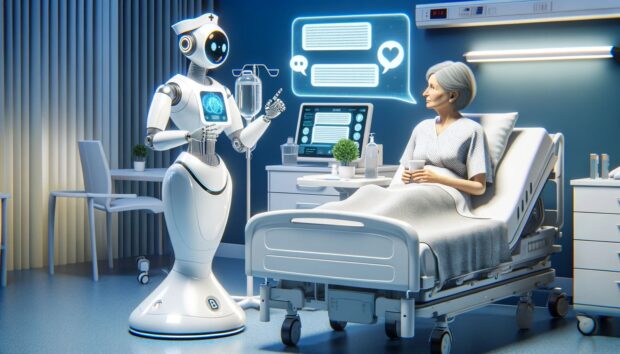

Researchers have developed an artificial intelligence tool capable of anticipating upcoming events in a patient’s lifeminibet88, from future symptoms to treatments to be prescribed. It is fed by a large database of British and American public data. Initial results are particularly encouraging.
A study by researchers at the Institute of Psychiatry, Psychology & Neuroscience (IoPPN) at King’s College London demonstrates the effectiveness of an artificial intelligence-powered tool called Foresight. Foresight is capable of predicting the medical future of patients, simply by analyzing their digital health records.
To achieve this, three models were developed, trained using data from some 811,000 patients directly from the UK’s public health system, concerning two hospitals in England, and from a major US database. The idea is to “predict” the health trajectory of patients by anticipating disorders, symptoms, medications to be taken and upcoming procedures.
Article continues after this advertisementAll this data was used to train Foresight, and performance was measured by comparing its predictions with the actual outcomes subsequently observed in these patients. In most cases, Foresight was right.
FEATURED STORIES TECHNOLOGY vivo launches V40 Lite with 5000mAh battery covered by 50-month warranty, starts at Php 13,999 TECHNOLOGY Galaxy Buds3 Pro: Delivering tailored sound wherever you go TECHNOLOGY Very mindful, very intuitive: ASUS’ most superior AI PC yet, the Zenbook S 14, empowers you to achieve moreTests showed that the tool correctly identified the next 10 disorders likely to appear in a patient’s timeline in respectively 68%, 76% and 88% of the cases processed by its three models. The models also proved conclusive when predicting the next medical event to come, be it the onset of a disorder, a relapse or medication, with a correct prediction of 80%, 81% and 91% respectively.
This research is published in the journal The Lancet Digital Health. In the future, this kind of AI-powered healthcare could help clinical decision-making and patient monitoring in real time.
Article continues after this advertisementIndeed, this is not the only AI tool being developed with the aim of improving doctors’ diagnoses.
Article continues after this advertisementIn the United States, the American start-up Hippocratic AI recently announced a partnership with Nvidia to develop a virtual health agent concept, powered by generative artificial intelligence.
The idea is to create a virtual assistant capable of understanding and reacting to patients’ emotions, in the form of an animated character on a tablet that dialogues remotely with patients.
Subscribe to our daily newsletter